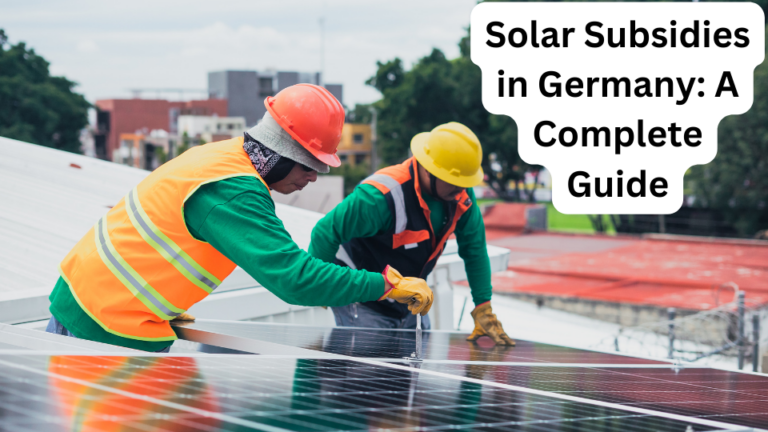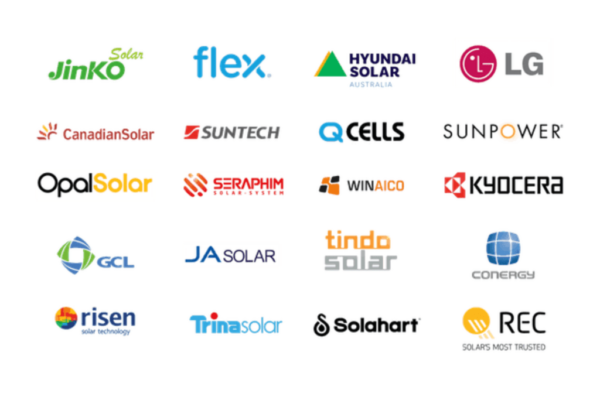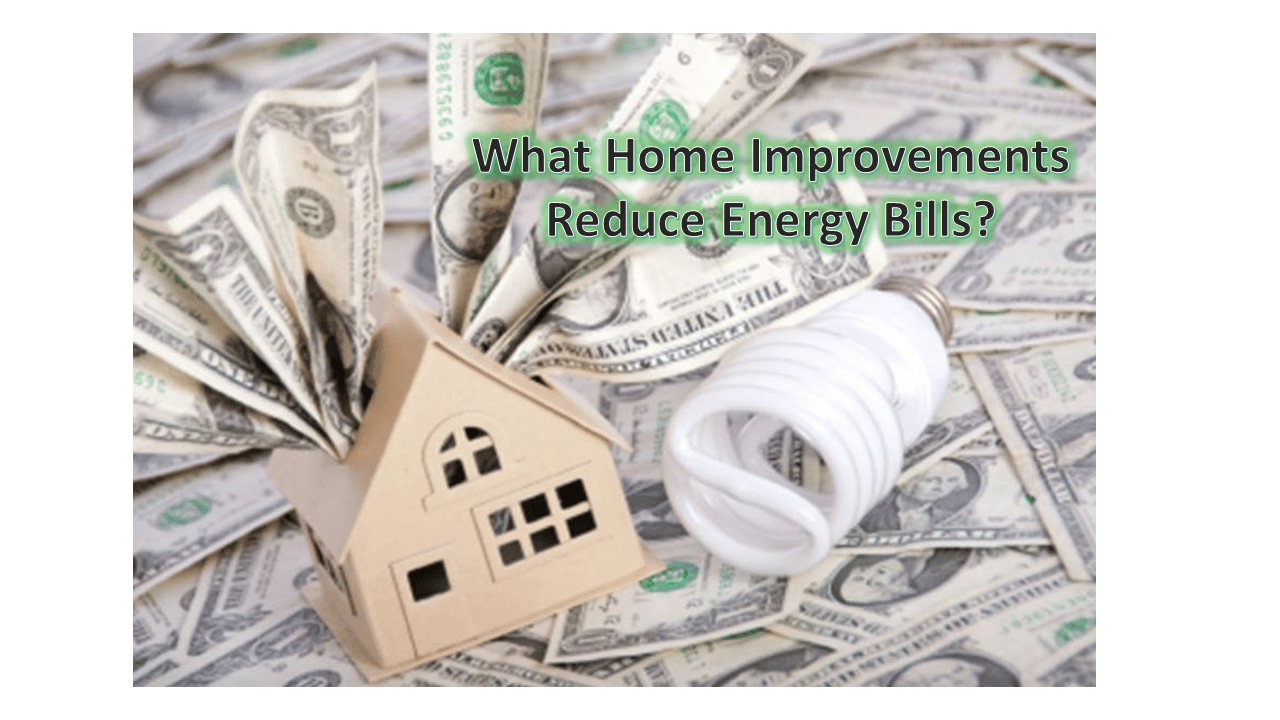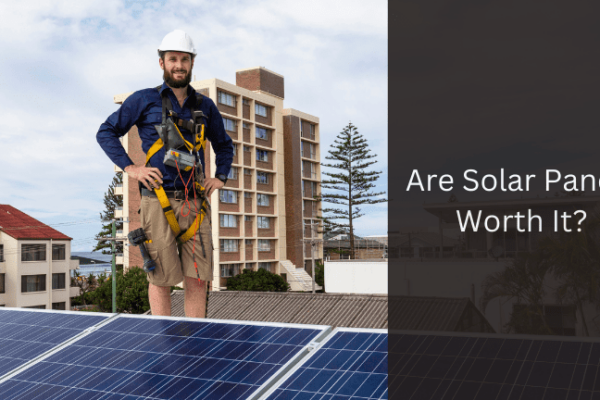Germany consistently ranks as one of the top countries in renewable energy. As of 2021, renewable energy accounts for 46 percent of Germany’s total energy production. It is the 4th highest producer of solar power, producing 58,461 megawatts.
The phenomenal growth of renewable energy in Germany has been policy driven. In line with the goal of becoming 80 percent clean energy dependent, Germany has possibly the most favorable raft of renewable energy policies in the world. It should come as no surprise that they consistently make the top five countries in terms of new solar installations.
But what solar panel grants are there and how can consumers take advantage of them? In this guide, we look at the different solar subsidies available for homeowners.
How Do Solar Panel Grants Work?
Generally, solar panel grants bring down the costs of solar panels. There are two main ways in which this commonly happens. The first is through a rebate or tax credit that reduces the upfront costs of solar panels and installation.
The second way is through buyback schemes where a utility or power company pays a consumer for the excess energy generated from their photovoltaic system. There are several types of schemes, but these are the ones you will most likely find.
Solar subsidies make it cheaper to go solar. Instead of paying the full cost, a subsidy can offset a percentage of the sticker price of a solar panel system. Subsidies also reduce the payback time or the time it takes for you to recoup your investment in a renewable energy system.
A subsidy can also significantly increase the long term savings you get when you switch to solar energy. One way to get added value from solar is to get an efficient solar system. To find out how much you can save on solar, take our free quiz and get three free quotes on solar panel systems.
Germany Renewable Energy Sources Act (EEG)
The EEG as it is also called, is the main law on renewable energy in Germany. Several amendments and changes have been made to it since it was adopted, with the most recent changes coming into force in July 2022.
The newest changes to the law affect the solar industry more than any other. In terms of the law, Germany hopes to install 215GW of solar by 2030. Some grants and incentives like low-interest loans for solar fall under this law while some are given by agencies, federal and local government.
The grants may cover the purchase of a solar panel system or batteries. This could come in the form of a one off lump sum or reimbursement for a loan or financing. The grant can also come as payment for the electricity generated by a photovoltaic system.
Solar Investment Grants
These are grants that cover the cost of purchasing a photovoltaic system or energy storage. Germany has somewhat reduced the scope of this type of grant. Rather than fund complete solar systems, the focus is now on energy storage (batteries), solar plus storage and electric car charging ports.
These grants are applied at federal state level. It is important to note that these grants are subject to availability based on the budget allocated. These are some of the largest solar funding grants in Germany.
| STATE | SCOPE OF GRANT |
| Baden-Wuerttemberg | Energy storage |
| Bavaria | Energy storage plus solar system |
| Berlin | Energy storage plus solar system |
| Brandenburg | Energy storage |
| Lower Saxony | Energy storage, Car charging ports |
| North Rhine-Westphalia | Energy storage plus solar system, Car charging ports |
| Rhineland-Palatinate | Energy storage plus solar system |
| Saxony | Energy storage |
| Saxony-Anhalt | Energy storage plus solar system, Car charging ports |
| Schleswig Holstein | Energy storage |
| Thuringia | Solar system, Energy storage |
Batteries are the most expensive component of a renewable energy system. Amendments to the EEG are meant to encourage self-consumption of energy generated by renewable energy systems. Subsidizing the high cost of energy storage is one of the ways it hopes to encourage this. There are several federal state level subsidies open to consumers with energy storage systems.
Bavaria
Homeowners in Bavaria can claim €500 for a 3kWh solar storage unit and €100 for every additional kWh under the Energy Storage Photovoltaic Program. The maximum size of the system is capped at 30kWh which means you can claim up to €3,200.
Berlin
In terms of Berlin’s Energy Storage Plus program, homeowners can claim €300 for every kWh of energy storage up to €15,000. At the time of writing, funds had already been exhausted but there is another round of funding planned for the near future.
Lower Saxony
In Lower Saxony, homeowners can offset 40 percent of the cost of energy storage or a vehicle charging port. The grant can be applied to a maximum of €50,000.
Tax Subsidies
Aside from grants, tax subsidies can also reduce the upfront cost of a photovoltaic system. This is in the form of a tax write off for the purchase of a system.
Federal Funding for Efficient Buildings (BEG)
These are a raft of grants aimed at improving energy efficiency and the use of renewable energy technologies especially in new buildings. Launched in 2021, the program has run under the “Energy-Efficient Construction and Refurbishment” name.
The program encompasses improvements on:
- Residential buildings
- Non-residential buildings
- Individual measures which are improvements on a single unit rather than an entire building.
Any property owner including non-German citizens can apply for the grant. In terms of the grant, property owners are entitled to between 20 to 40 percent funding for a renewable energy system. The grant also covers the purchase of an energy efficient home. Prospective property owners can receive a loan of up to €150,000 with a 25 percent repayment grant.
Feed-in-Tariff
Grants are not only for the purchase of a photovoltaic system. They can also pay out for electricity produced by one. Your electricity supplier pays you for the electricity you feed into the grid.
The tariff at which you will be paid is locked in at the month in which your system is commissioned for 20 years. If your system is commissioned at a tariff of 6.32 cents, that is the tariff you will receive for the next 20 years.
Renewable energy grants are a great way to get the most out of your solar panel system. But policies change and it is better to take advantage of them while they are in place. Take our free quiz to find out how much solar panels cost.




